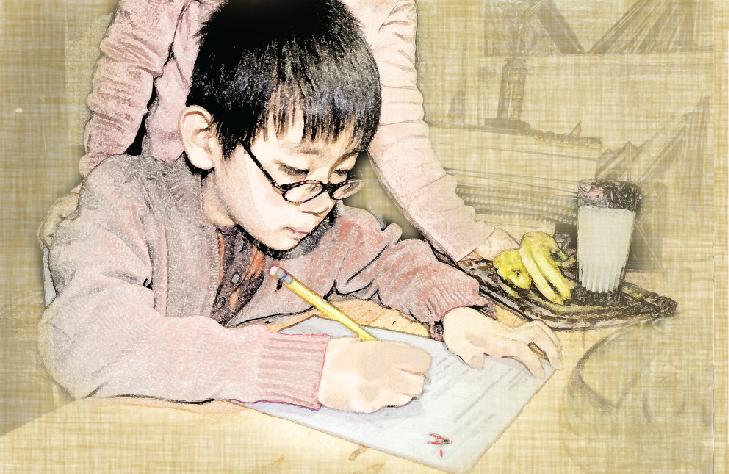Do you freak out at any letter other than an A on your report card? Do your parents not even let you in the house if you have a C in math? Are you in either Langley Orchestra or Band? Were you called a piano prodigy when you were in 2nd grade? Then you are a typical Asian.
The “Tiger Mom”
This stereotype about Asians –studious, geniuses at math and music – has been spread over Langley students probably since the year the school opened. However, few students of other backgrounds know why so many Asians were like that, until Amy Chua, a mother and Chinese professor at Yale Law School, published Battle Hymn of the Tiger Mother, a memoir on her experience of raising two daughters.
In this book, Amy Chua disclosed the ‘Chinese-style’ of parenting: showing naked disappointment on a child’s failure, urging the child with any method possible to exclusively study, and allowing leisure time only when the child has finished his/her many obligations. This method, along with Amy Chua’s attack on the ‘Western-style’ of parenting, has roused sharp criticism from non-Asian Langley students.
“It’s really outrageous…that a parent will burn her child’s toys only because she is not doing well. I mean, the child’s trying as hard as she can,” commented sophomore Elizabeth Regan. True, to Westerners who regard a child’s happiness and self-esteem as the utmost value, this Asian method will only seem violent, meaningless, and exotic. Nevertheless, defense of this parenting method is important.
The Asian Stereotype
But first, many of you will be asking, ‘wait, then IS Amy Chua’s parenting method actually being carried out in other Asian households too?’ To be brief, YES, although many of the methods are exaggerated in the book. For example, out of a poll of 50 Asian students at Langley, 41 felt Asian parents have similar parenting styles to Chua.
It’s just a matter of cultural difference. The historically strong emphasis on education and how hard work ethic leads to success has created thousands of generations where expectations are set extremely high. That’s why even Asians who resented their strict parents when they were young often get to thank them as they grow up, and eventually treat their own children the same way.
We should simply respect these ancestral influences. Instead of prematurely judging Chua, her book, and her parenting, look to the unique cultural history which has driven the excellence she instills in her children. Although it’s different, it is not wrong.
Out of 50 Asian students in Langley, 41 answered ‘yes’ or ‘somewhat yes’ to the question ‘do you think other Asian parents are like Amy Chua?’ 44 answered to the question ‘how did your parents raise you up?’ by choosing ‘like Amy Chua’ or ‘not that much…but still strict.’
However, there seem to be several misconceptions among Langley students that have to be corrected.
Misconception 1: Asian parents consider their children as mere robots that will lose their meaning of existence the moment an F appears on their progress reports. That is completely wrong. Asian parents love their children too: when they see their children cry, they want to cry too. When they beat their children’s palms as punishment, they feel as if their heart is being run over by a jumbo tank. Every parent, regardless of race or nationality, loves their children. It’s just that the Western parents’ way of loving is boosting their children’s self-esteem and confidence right now, and that the Asian parents’ way is upgrading their children’s ability and preparing them for the future. Their means can be ‘different,’ but not necessarily ‘wrong.’
Misconception 2: Academics are Asian parents’ only concern. As long as we remember, most of the occasions when we were punished or scolded by our parents were when we were impolite or misbehaving.


